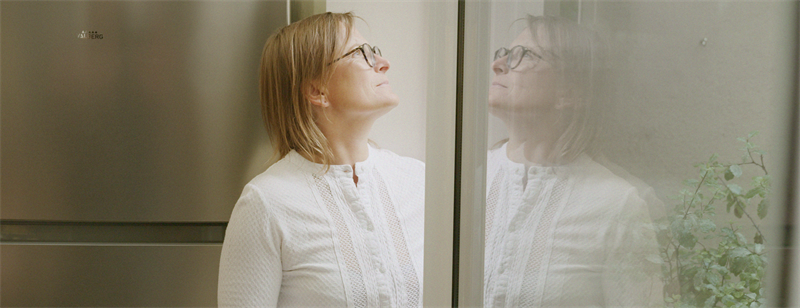One third of people globally feel more positive about their homes in the past 12 months, new IKEA research reveals

Eighth annual IKEA Life at Home Report shows how homes have helped and hindered mental health and wellbeing around the world during the pandemic.
Live streamed table talk today at 14:00 CET. Register here
- 40 percent of people who felt more positive toward their home in the last 12 months also saw their mental health improve
- To achieve better balance at home, people say relaxation (53 percent) and alone time (38 percent) are the most important activities
- Family relationships have taken centre stage during the pandemic, but one in five people have seen their friendships suffer
Global research released today by IKEA Retail (Ingka Group) reveals the vital role that home has played in meeting people’s mental wellbeing needs during the pandemic. The IKEA Life at Home Report shows that people who feel more positive toward their home now than they did 12 months ago, have also seen their mental health improve (40 percent). Significantly, four in ten people (42 percent) say that their relationships with direct family have improved during the same period, and almost a third (31 percent) consider being near to loved ones more important in an ideal home.
However, 14 percent of people say that where they live doesn’t sufficiently meet their mental wellbeing needs. And whilst some family relationships have benefited from time together, one in five people globally (19 percent) say their friendships have suffered over the last year. Given that the research also revealed that 41 percent of people around the world talk to their friends about mental health – rising to 46 percent amongst women and dropping to 36 percent in men – it’s clear that many homes around the world must do a better job at supporting people’s mental wellbeing needs and nurturing relationships.
Marcus Engman, Chief Creative Officer, Ingka Group says: “Now we know the ideal home is a greener, spacious and more comfortable place to live, where we can be close to the people we care about and do the activities that make us feel good. A happy home is great for the mental wellbeing of us all, so let’s shake things up a bit and help people out to create more happy homes. What are we waiting for?”
More than 34,000 people from 34 countries shared their thoughts on mental health and life at home, reflecting on the impact of the last 12 months and how they feel about the future. The results show that in a tough year, in which 27 percent saw their mental health suffer, people are clear about what they need and want from home. When things have so often been unpredictable, 84 percent say it is important to have control over the place where they live. The good news is that people aren’t waiting to take action, given that 60 percent say they’ve already made changes to their home in the last 12 months in order to do the activities they wanted. Half of those (47 percent) who made significant efforts to reorganise their homes now feel more positive about them, compared to one in three (33 percent) of those who made very little effort or none at all.
Michelle Ogundehin, Interior designer, writer, author, brand consultant and TV presenter says: “I believe that your environment is as important to your health and wellbeing as good food and exercise. It is the third pillar of living well. And yet, according to the new IKEA Life at Home Report, just 14 percent of people around the world said that their homes met their mental health and wellbeing needs. But other responses give us glimpses of some solutions: 93 percent of people understand the importance of their home providing them with a sense of comfort, and 47 percent of people who made the effort to reorganise their home, now feel more positive about them.
“So, I want to share my top tips for harnessing the power of home for health and happiness, from optimising space and putting your own personal touch on things, to adding joy through colour. These are guidelines that delve deeper than decor. Rather, the goal is to help you to become your best self through home.”
All these changes point to a shift in what people want to do at home. Almost a third (32 percent) say they want to spend more time doing hobbies, and more than half (53 percent) say that relaxation at home has increased most in importance for maintaining a sense of mental wellbeing. Thinking about the ideal home, more space and greenery have increased most in importance during the last 12 months: 28 percent of people want spaciousness, 27 percent want it to be easy to clean and keep clutter free, and 36 percent want a private garden or balcony. With this kind of momentum underway, perhaps it’s no surprise that as many as 38 percent of people say they feel the future will be better than today.
IKEA is encouraging people to share their tips for creating a better life at home, and their life at home stories, via tips, stories and videos at the @IKEA Instagram channel. Tag your post with #BetterLifeBalance to join in the conversation.
For advice on how to get better balance at home, and to read the full interactive report, head to https://lifeathome.ikea.com/ and IKEA.com.
----------------------------------
More information about the Life at Home Report can be found here: https://lifeathome.ikea.com/
Ingka Group Media Relations
+46 (0) 709 936376
About the research
The quantitative research was carried out by YouGov on behalf of Ingka Holding B.V. – IKEA Group. YouGov is an international research and data analytics group. YouGov interviewed a total sample of 34, 387 adults aged 18+ in the United States, Canada, United Kingdom, Ireland, Germany, France, Italy, Spain, Portugal, Austria, Switzerland, Belgium, Netherlands, Russia, Poland, Czech Republic, Romania, Hungary, Serbia, Croatia, Slovakia, Slovenia, Lithuania, Latvia, Estonia, Sweden, Norway, Denmark, Finland, China, Japan, South Korea, India and Australia. The survey was conducted in 34 countries between 24 June and 28 July 2021, via online panels for each country. Quotas have been applied on gender, age and region, and data was weighted according to the dimensions of gender, age and region on the basis of an ideal weighting from statistics in each country, so that the results are representative of the population in regard to the target group. Bases: All adults = 34,387
For further information, journalists and media professionals can contact us at press.office@ingka.com or by calling +46 70 993 6376
Ingka Group (Ingka Holding B.V. and its controlled entities) is one of 12 different groups of companies that own and operate IKEA retail under franchise agreements with Inter IKEA Systems B.V. Ingka Group has three business areas: IKEA Retail, Ingka Investments and Ingka Centres. Ingka Group is a strategic partner in the IKEA franchise system, operating 390 IKEA stores in 32 countries. These IKEA stores had 706 million visits during FY20 and 3.6 billion visits to IKEA.com. Ingka Group operates business under the IKEA vision - to create a better everyday life for the many people by offering a wide range of well-designed, functional home furnishing products at prices so low that as many people as possible can afford it.
Tags:






